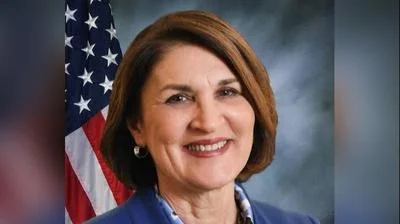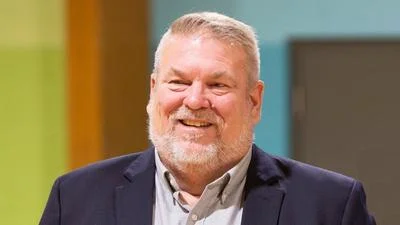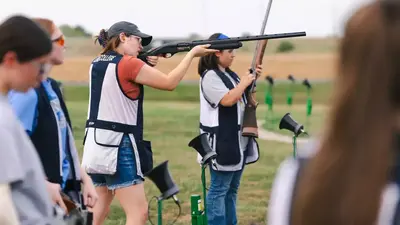The Illinois Council on Aging met Aug. 11 to discuss CARE Act activities.
Here are the meeting's minutes, as provided by the council:
The Illinois Department on Aging "works to improve the quality of life for Illinois’ older citizens by helping them live independently in their own homes and communities."
State of Illinois Illinois Department on Aging
Older Adult Services Advisory Committee Meeting Minutes
CARE Act/Bridge Model/NH Deflection Pilot Meeting
Date: August 11, 2016 3:00 – 4:00 p.m. (Minutes approved August 25, 2016)
Conference Call Meeting: Call in# 1-888-494-4032 Access Code: 5245-164-319
IN ATTENDANCE: Committee Members Carol Aronson – Shawnee Alliance for Seniors Amy Brown – CRIS Healthy Aging Center Robyn Golden – Rush University Medical Center Jan Grimes – Illinois HomeCare and Hospice Council Sherry Barter Hamlin – River-to-River Residential Corporation Lori Hendren – AARP Kay Kibler –Willowbrook Memory Support Houses Michael Koronkowski – UIC College of Pharmacy Jon Lavin – AgeOptions Phyllis Mitzen – Center for Long Term Care Reform Susan Real – Caregiver – East Central Illinois Area Agency on Aging Louis Starmann- Citizen member over the age of 60
Ex-officio Committee Members: Jean Bohnhoff – OASAC Chair & Director, Department on Aging Kelly Cunningham – Department of Healthcare and Family Services
Department on Aging staff Alex Burke, John Eckert, Sophia Gonzalez, Jennifer Reif, Matt Ryan
Guests: Renae Alvarez, Walter Rosenberg
Welcome & Introductions: John Eckert welcomed everyone to the meeting and called for a motion to call the meeting to order. Mike Koronkowski made a motion and Walter Rosenberg seconded. All members voted in favor. Eckert announced the names of the person on the call.
Approve minutes for June 1st, 2016 Coordination of Care Act/ Bridge model/ NH Deflection Pilot Meeting: John Eckert asked members for a motion to approve the minutes from the June 1st, 2016 meeting with the correction of adding Walter’s last name to the minutes. Mike Koronkowski made a motion to approve the June 1st, 2016 meeting minutes with the last name addition and Louis Starmann seconded. All members voted in favor.
Discuss CARE Act activities: John Eckert stated that the meeting had been set up to go over the follow up activities that had been discussed during the last June 1st meeting. Lori Hendren reported that AARP has an upcoming educational activity in October, in which the CARE Act will be discussed. She mentioned that October is Caregiving Month and AARP is also working on posters and cards with information on the CARE Act. Susan Real asked for clarification; is this education targeted for Caregivers or Hospitals? Hendren clarified that the education is targeted for AARP members and that the Hospital Association would be responsible for the education for hospitals. Eckert asked Hendren if she would want to coordinate with some of the trainings that Robyn Golden’s team has developed. Lori agreed. Phyllis Mitzen mentioned the Bridge Program training. Renae Alvarez explained that the Bridge Program trainings are offered on a monthly basis and webinars are made available on bi-monthly basis. Alvarez explained that there are 65 Bridge sites across the nation. Hendren stated that she would be happy to participate in these trainings and provide information about the CARE Act. Mitzen stated that the components of the CARE Act could be incorporated into Illinois Bridge trainings. It was noted that there are two upcoming trainings for Care Coordinators and information about the CARE Act could be shared. On August 18th training will be held in Naperville. Carol Aronson noted that Bill Wheeler will be coordinating the trainings for CCUs and an overview of the CARE Act could be included. Hendren mentioned that she would not be able to join this meeting on this date but would be able to join but can provide information to be presented. Aronson noted that she would coordinate with Wheeler and Hendren. Jan Grimes discussed the Hospital Association website in which they will provide information on Health Care, Caregivers and Care Coordination and inform everyone that they are available to assist.
Discuss Bridge Model activities: John Eckert stated that one of the immediate goals that had been discussed during the last meeting was to contact the 26 Bride sites and informing them of this workgroups activity. Walter Rosenberg agreed that this contact could be arranged. Rosenberg explained that the Bridge model provides two different types of webinars; one that is closed to the public that is model specific and another that is open to the public in which CEUs are offered and broader topics are discussed. Rosenberg advised that Caregiving and the CARE Act can be added to the second type of webinar that discusses broader topics. Lori Hendren will coordinate with Rosenberg. Eckert noted that another goal was to collaborate with the Illinois Hospital Association; and asked regarding the BlueCross training grants and IHA funding that has been obtained to conduct Bridge Model training in the past. Rosenberg shared that that funding had been obtained several years ago and that the training had been completed. He mentioned that there had been trainings for two cohorts of 20 hospitals to prevent readmissions. Rosenberg also shared that he still has the contact information and would be able to reach out to the groups. Someone brought up skilled nursing facilities; it was mentioned that many caregivers will not be assisting family members coming from hospitals but from nursing facilities. Carol Aronson stated that there has been an increase of hospital discharges that go through skilled nursing facilities (SNF). Aronson mentioned that hospitals have been the place where Bridge is introduced and permission is obtained to follow the person to the SNF and help ensure that they receive the treatment plan and then work with them to transition them back home. One goal is to reduce the stay at the SNF and becoming involved before they go home.
John Eckert shared that the HHS Transformation Pre-screening subcommittee is working on goals for the next 24 months. They are carefully looking at pre-screens and the fact that many people are going straight into SNFs. The subcommittee is looking at the difficulty of getting a 24 hour notice, the development of policies and change of rules to get into a SNF to assist with deinstitutionalization. There is a need to identify those individuals that are in these facilities for rehab only and getting to them before they lose CCP services. The Department is working with HFS and DHS. Deflection of individuals from SNFs continues to be a difficult task across all state agencies. Louis Starmann stated that 15 days to have a follow up assessment is too long, she stated that the follow up should happen right away. Carol Aronson that for Shawnee the identification begins in the hospital, they send a caseworker to the SNF within 15 days and check in with them during the stay and continue to work with them. Aronson mentioned that today, SNFs have rehab units but 20 years ago people would go home and receive occupational therapy at home. A question was asked as to why the emphasis has gone from receiving therapy in the NF instead of the home. Phyllis Mitzen stated that Medicare Payments might be the reason and finding a new niche to use unoccupied rooms/beds. Eckert shared that HHS Transformation will be holding 2 hearings and information is posted on the website. One hearing will be held at JRTC on Wednesday, August 24th from 2:00- 4:30pm and another on Thursday, August 25th from 10:00-2:30pm. Everyone was encouraged to attend and possibly make comments on the expansion of the Bridge Model. He mentioned that the Behavioral Health issues could be addressed with the Bridge Model. Robyn Golden added that there is also a Psycho-social aspect. Phyllis Mitzen asked Renae and Walter to discuss this aspect in the Bridge Model. Rosenberg shared that under Bridge the case manager gets the individual engaged in the own care plan and if there is a Behavioral Health issue, this would get in the way. Managed Care Organizations (MCOs) were also discussed by the group and how the transition piece is difficult for them because they do not have access to hospitals. Eckert asked how we can involve the MCOs. Carol Aronson shared that partnering more purposely and connecting with the Bride Model sites would help. The issue of funding was discussed. Rosenberg shared that Rush has to pull together cost benefit information two and a half years ago and has valued based contracts.
Amy Brown shared that her program initially had a federal contract with CMS to reduce readmission rates and they currently have three contracts with three different hospitals. Some hospitals have revised their contract, and have asked them to carry some patients indefinitely and are paying per patient. Brown also shared that her program has about 80 patients per hospital and a total of four staff for about 200 patients total. One of her staff only completes home visits and the others are based at the hospitals. John Eckert asked if any ACA seed money had been received for the Bridge Model. Robyn Golden responded that section 3026 CMS Innovation Centers started about 100 programs but that only a few are left. Golden shared that there was a disconnect of measurements in the programs and it is unfortunate that the program is viewed as less successful that it was. Brown shared that there also was a Pilot Project to measure the methods in the U.S. of how effective the communities would be able to build partnerships. Golden stated that CMS had not mandated the hospitals to be part of this pilot. A difference in contracts was noted under this pilot program and it was mentioned that it was a good step up program and it kept hospitals involved. Eckert asked if this program involved the 26 Bridge sites that have been mentioned in past meetings. Phyllis Mitzen clarified that these were two different things. Jon Lavin mentioned that the goal had been to see if we could get a reimbursement code for Medicare and referred to programs in other states California, Ohio, and Florida. Golden explained that the Teaching in-home caregivers Kaiser Health News study conducted in California showed a difference in reducing institutionalization. She asked everyone to think outside the box with the rise in Dementia, the Bridge social role and the CARE Act and people going home after discharge.
Jon Lavin asked about the Recognize, Assist, Include, Support and Engage (RAISE); he asked if it was a task force team regarding caregiving. Lori Hendren responded that RAISE is an act that would bring together an advisory council to recognize and support family caregivers. Amy Brown was asked if the contracts are time limited, would they continue if savings can be shown. Brown responded that they compared readmission rates with patients that are followed vs those patients not followed. Walter Rosenberg asked who was saving money; the patients or the hospitals. One of the problems in continuing the program was that the hospitals needed an incentive to continue with the program. Brown reported that she has also begun conversations with an MCO for a contract with this program. Robyn asked if Jan Grimes’ article regarding the program had been shared with everyone. John Eckert confirmed and also stated he would send it out again. Golden stated that that was the latest evidence that regarding the model. It was stated that Bridge is a good and successful model but that a cost analysis specific to Illinois needed to be looked at. Eckert asked if any of the 26 sites have contracts that will be continued. Brown reported that the hospitals are paying directly for CRIS’ Bridge services. Lavin asked about Catholic Charities and Engels Hospital. Rosenberg reported that his program has a few months left.
Next steps: Everyone was encouraged to offer testimony on the waiver and the HHS transformation in the upcoming 1115 Behavioral Health proposed waiver hearings.
Next meeting date: The next meeting will be scheduled for two weeks from today, August 25th from 3:00-4:00pm. The group will be looking at what he model looks like, franchising and what about the model is successful. Lori Hendren reported that she would be unable to join the next meeting.
Adjournment: The meeting was adjourned at 4:03 p.m.






 Alerts Sign-up
Alerts Sign-up